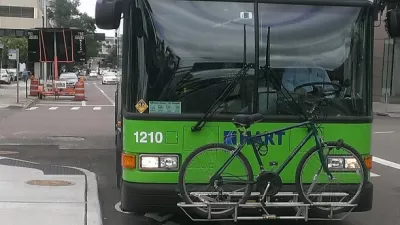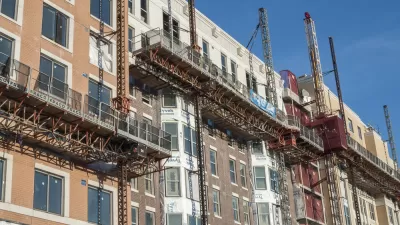Trump plans to authorize $137 billion in tax credits to private construction companies to build projects with tolls and other future cash streams to them to spur building and the economy.

In a campaign that has generated a great deal of talk about the importance of rebuilding American infrastructure, some have criticized GOP candidate, Donald Trump, for not providing specifics. On October 27 with less than two weeks left in the campaign, the Trump team released a document entitled "Trump Versus Clinton on Infrastructure" that fills in some of those details.
In his article for the Washington Post, Jim Tankersley, points out that this type of plan would not be in keeping with traditional conservative views. The document makes a Keynesian argument about the economic benefits of pumping government money into the economy, suggesting that the building boom that would follow would be a boon to the U.S. economy. Meanwhile, some on the left have expressed concerns about privatizing a trillion dollars-worth of American roads and bridges.
For their part, Wilbur Ross and Peter Navarro (the Trump advisors who authored the plan) suggest that it provides a best- of-both-worlds approach. Tankersley reports that they, "Calculate the added tax revenue would be enough to pay for the total cost of the tax credits."
However, Tankersley found that economists dispute this assessment, writing, "Alan Cole, an economist at the Independent Tax Foundation, said the proposal likely overrates the amount of tax revenue that would be generated by the private spending, partly because it appears to assume that every worker on the infrastructure projects was not working — or paying income taxes — previously."
FULL STORY: Donald Trump believes the United States can get $1 trillion in new roads — for free

Planetizen Federal Action Tracker
A weekly monitor of how Trump’s orders and actions are impacting planners and planning in America.

Chicago’s Ghost Rails
Just beneath the surface of the modern city lie the remnants of its expansive early 20th-century streetcar system.

San Antonio and Austin are Fusing Into one Massive Megaregion
The region spanning the two central Texas cities is growing fast, posing challenges for local infrastructure and water supplies.

Since Zion's Shuttles Went Electric “The Smog is Gone”
Visitors to Zion National Park can enjoy the canyon via the nation’s first fully electric park shuttle system.

Trump Distributing DOT Safety Funds at 1/10 Rate of Biden
Funds for Safe Streets and other transportation safety and equity programs are being held up by administrative reviews and conflicts with the Trump administration’s priorities.

German Cities Subsidize Taxis for Women Amid Wave of Violence
Free or low-cost taxi rides can help women navigate cities more safely, but critics say the programs don't address the root causes of violence against women.
Urban Design for Planners 1: Software Tools
This six-course series explores essential urban design concepts using open source software and equips planners with the tools they need to participate fully in the urban design process.
Planning for Universal Design
Learn the tools for implementing Universal Design in planning regulations.
planning NEXT
Appalachian Highlands Housing Partners
Mpact (founded as Rail~Volution)
City of Camden Redevelopment Agency
City of Astoria
City of Portland
City of Laramie





























